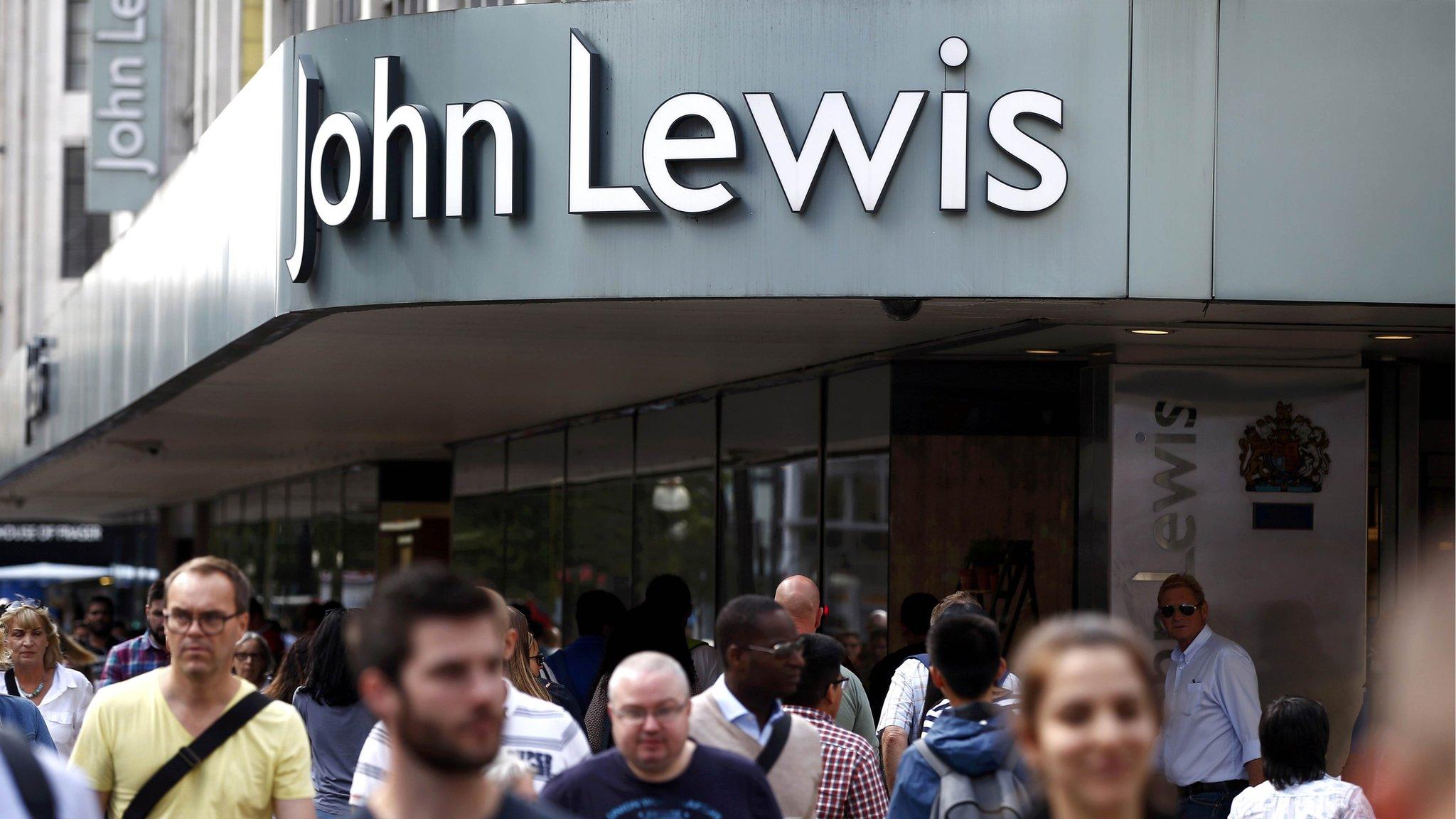New John Lewis boss says department store needs reinventing
- Published
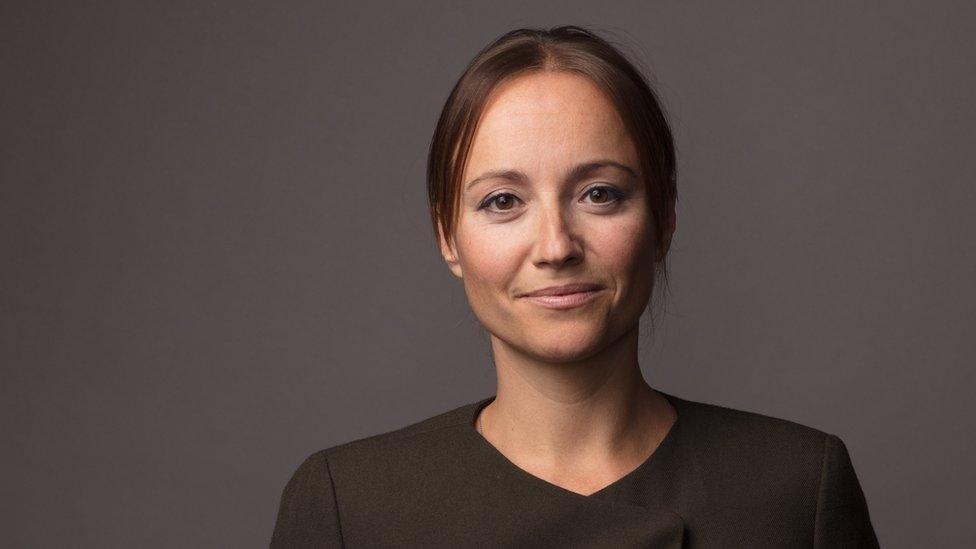
New chief Paula Nickolds is the company's first female managing director
The new boss of John Lewis says the department store needs reinventing for a new generation of shoppers.
Paula Nickolds is the first female managing director of John Lewis, having worked her way up the ranks as a graduate trainee.
"I've inherited a business in really good shape, but we need to change," she says.
Ms Nickolds has taken over the helm during what she describes as a "pretty challenging" time.
Not only is the industry undergoing profound structural changes as shoppers are increasingly going online, retailers are also grappling with the devaluation of the pound following the Brexit vote.
"We are seeing input prices rising substantially, no doubt... but we don't yet know how much will be passed on.
"It's a pretty volatile environment."
Ms Nickolds, a self-confessed shopping and design "junkie", is 12 weeks into her new role.
Asked about how consumers were faring, she said the business was beginning to see a change.
"We do regular customer insight and we are seeing slightly more uncertainty in the way people are thinking about their personal finances."
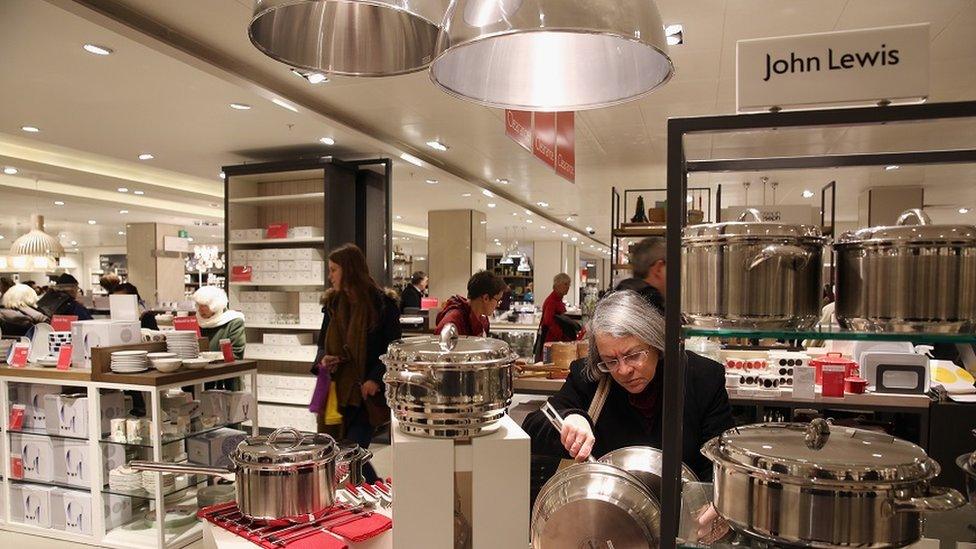
John Lewis currently has 48 stores, as well as about 350 Waitrose supermarkets. Three new John Lewis stores are in development, one in Oxford to be opened this year, followed by stores in London's Westfield White City and Cheltenham. But there will probably be fewer new stores in future.
"Do I believe in shops? Absolutely," she says.
"Shops are not just a route to sell things, they are an invitation for customers to experience our brand, and what we stand for. "
One ambition is to increase the amount of own brand and exclusive products. John Lewis wants more than 50% of the products it sells to be available only at its stores, up from 37% today.
'Holistic' shopping
For instance, in the past few days it's launched its own denim range, And/Or, designed in Los Angeles.
Ms Nickolds' aim is to create a new retail model: "The era of channel [either online or store] is over. What we're really embarking on now is a world, where for consumers, channels are completely merged and we need to think that way.
"When I'm talking about reinventing the department store, I'm not talking about physical space, I'm talking about the holistic provision of services that a department store can provide."
Shops, she says, have to be more experience-led, where people go "for a mooch".
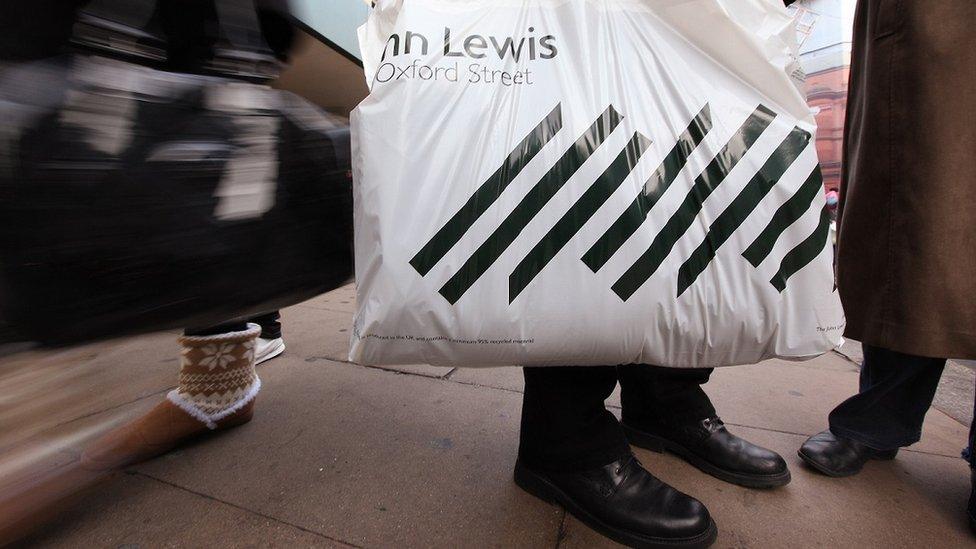
Ms Nickolds says one of the first things she did when she got her promotion was delving into the John Lewis archive and its 150-year history.
"At those times the model came under strain, John Lewis got closer to the customer. In the 1950s and 60s as the supermarkets arrived on the scene, John Lewis set out to identify human needs and fulfil them. For instance, we did a daily food delivery service to caravans and holiday homes."
She says that, although the business looks very different today, the principles remain the same: "There's a huge amount of expectation and weight of responsibility when you're the managing director of John Lewis. I'm very conscious of that.
"It's an enormous honour and privilege to lead this business. Any MD is but a temporary guardian of this brand.
"It has something very special about it and so I am very mindful during my time that I stay true to the principles of this brand and what it stands for - in other words, a better way of doing business. This is precisely why I wanted this job".
John Lewis is still outperforming its rivals.
But to ensure its continued success, its new boss is also making clear that things will need to be different in future.


- Published9 March 2017
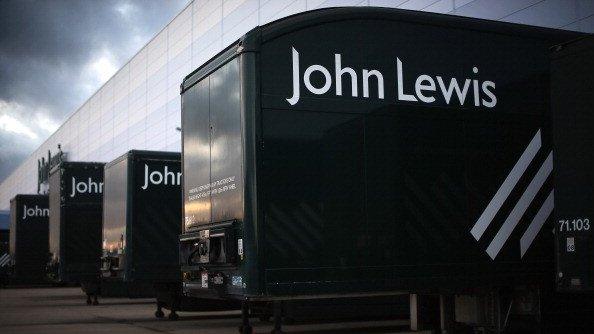
- Published23 February 2017
